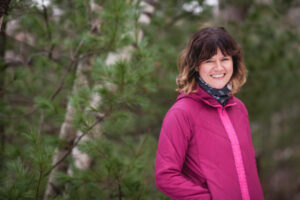World Wildlife Fund Canada (WWF-Canada) has launched a new 10-year plan—Regenerate Canada—that is responsive to that urgency and sets ambitious goals for stewardship and restoration of nature in order to fight biodiversity loss and climate change.
At the same time, WWF is also releasing new research today on the attitudes, awareness and behaviours of Canadians, which shows extremely high levels of pessimism about the future (right at the moment when we need action!) and a lack of awareness around what actions can effectively fight the dual crises.
To combat the feeling of hopelessness, WWF has also launched its “irREVERSIBLE” campaign, designed to remind Canadians that we there is still time reverse the path we’re on.
WWF-Canada’s latest Living Planet Report Canada found that populations of at-risk species have declined 59% on average since 1970. Over the next decade, drawing from scientific analysis and Indigenous guidance, all of WWF-Canada’s conservation efforts will drive toward three ambitious goals, designed to recover wildlife, fight climate change and get our future back on track:
- Restore at least one million hectares, regenerating lost complex ecosystems that provide essential wildlife habitat and capture carbon in nature.
- Steward or protect at least 100 million hectares of vital ecosystems for wildlife and communities.
- Reduce carbon emissions by 30 million tonnes by supporting and implementing innovative nature-based solutions in carbon-rich habitats.
All the goals of Regenerate Canada are designed to work together to positively impact nature in the short term, while laying the foundation for long-lasting, meaningful change. This message is the driving force of “irREVERSIBLE,” a national campaign launching today that aims to remind Canadians about two paths ahead of us, and the future we still have time to choose.
The WWF-Canada Pulse Check 2021, a national survey conducted with Environics Research, shows that two-thirds of Canadians are pessimistic that anything can be done to reverse the path we are on. The poll also reveals that most Canadians are unfamiliar with key conservation practices that could offer solutions to the crises.

Megan Leslie, president and CEO of WWF Canada. Image credit: WWF Canada, photo by Meghan Tansey Whitton.
“Almost every day it feels like we hear about a new species at risk of extinction, or a new climate change-related catastrophe. It is easy to feel overwhelmed. It is easy to feel like there’s nothing we can do. It is easy to feel like we might as well give up and learn to live with the consequences. But the truth is that we can make a difference. We can change the trajectory of the planet. And, best of all, we know what needs to happen. There is still time,” says Megan Leslie, president and CEO of WWF-Canada.
“If we act now — with ambition, dedication and collaboration — we can reverse that course together. That’s why we’ve launched our new plan to Regenerate Canada, and our ‘irREVERSIBLE’ campaign. And that’s why we’re asking people across the country to join us in making a difference for nature, for wildlife, for the climate and for people.”
WWF-Canada Pulse Check 2021
An online survey of 1,076 Canadians conducted by Environics between August 3–13, 2021 had the following results:
- 67% of Canadians are pessimistic about the condition of the planet for future generations.
- 94% of Canadians are concerned about biodiversity loss.
- 88% of Canadians are concerned about climate change.
- Two-thirds of Canadians think climate change is at a crisis point (with 14% believing we are past that crisis point and beyond the point of change.)
- Two-thirds of Canadians think biodiversity loss is at a crisis point (with 11% thinking we are beyond the possibility of restoring it).
- A strong majority of Canadians are unfamiliar with terms such as “nature-based solutions,” “carbon sinks” and “Indigenous-led conservation,” and how they factor into the dual crises of biodiversity loss and climate change.
- The majority of Canadians are unaware of the extent of the biodiversity crisis.
Featured image courtesy of WWF.









